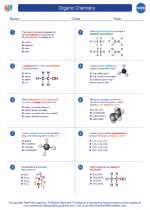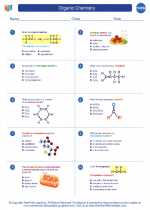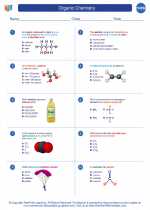Organic Chemistry -> earth's systems
Earth's Systems
The Earth is a complex and dynamic system composed of interconnected subsystems that work together to sustain life. These subsystems include the geosphere, hydrosphere, atmosphere, and biosphere.
Geosphere
The geosphere includes the solid Earth, comprising the crust, mantle, and core. It is responsible for geological processes such as tectonic plate movements, volcanic activity, and the formation of mountains and landforms.
Hydrosphere
The hydrosphere consists of all the water on Earth, including oceans, lakes, rivers, and groundwater. It plays a crucial role in shaping the Earth's surface through erosion, deposition, and weathering processes.
Atmosphere
The atmosphere is the layer of gases surrounding the Earth. It influences climate, weather patterns, and the distribution of heat and energy across the planet. It also plays a critical role in the carbon cycle and the regulation of Earth's temperature.
Biosphere
The biosphere encompasses all living organisms on Earth and their interactions with the other Earth systems. It includes ecosystems, biodiversity, and the cycling of nutrients and energy through food webs and ecological processes.
Interactions
These Earth systems are interconnected, and their interactions drive processes such as the water cycle, rock cycle, and carbon cycle. Understanding the interplay between these systems is crucial for comprehending the Earth's overall function and the impacts of human activities on the environment.
Study Guide
- Define the geosphere, hydrosphere, atmosphere, and biosphere.
- Explain the interactions between the Earth's systems.
- Describe the role of each system in shaping the Earth's surface and sustaining life.
- Discuss the impact of human activities on the Earth's systems and the environment.
- Explore current environmental issues related to the Earth's systems, such as climate change, pollution, and habitat destruction.
◂Chemistry Worksheets and Study Guides High School. Organic Chemistry

 Worksheet/Answer key
Worksheet/Answer key
 Worksheet/Answer key
Worksheet/Answer key
